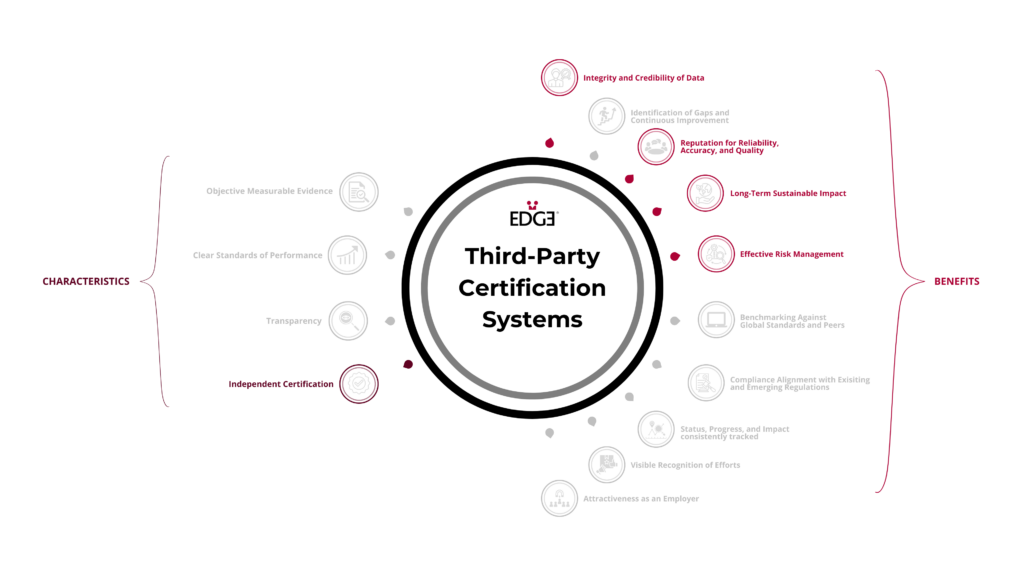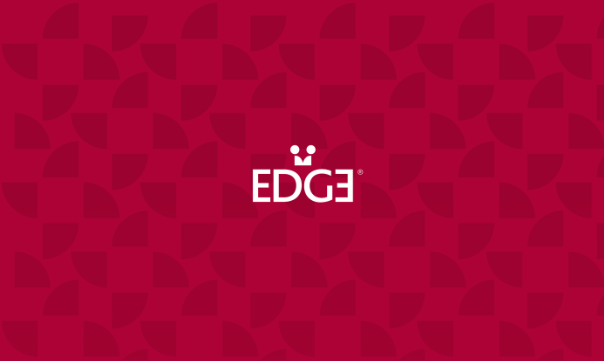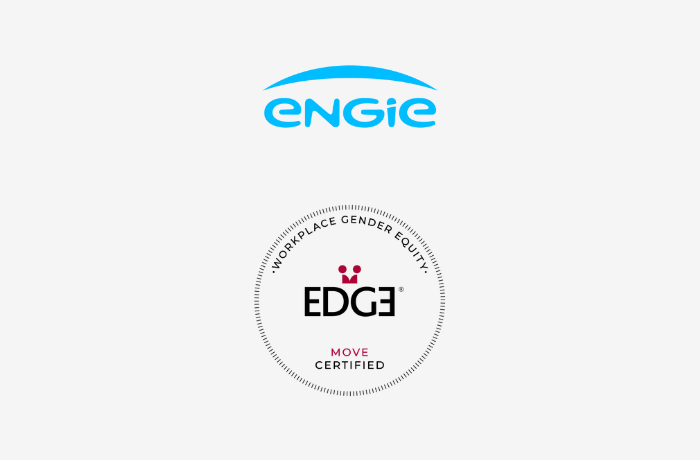Third-party certification systems play a pivotal role in ensuring accountability, transparency, and trust across industries and markets. They help organizations meet rigorous standards, and enhance stakeholder trust by providing reliable, verified data and information. As ISEAL (the global membership organization for credible sustainability standards) highlights, “Sustainability standards continue to be one of the most important tools to support businesses across the value chain deliver on core sustainability issues.” In this series of articles, we explore the four key characteristics and associated benefits of third-party certification systems. With a particular focus on EDGE Certification, the global standard for workplace diversity, equity, and inclusion, we demonstrate how certification gender equity, and gender and intersectional equity is a powerful tool that can drive inclusive economic growth and create respectful work environments for all.

Independent certifications are part of voluntary sustainability standards (VSS) systems, which are market-based mechanisms designed to create economic incentives for companies to align their economic value creation process with broader societal interest and, as a result, produce shared benefits for their multiple stakeholders.
Third-party certification systems such as EDGE ensure rigourous, unbiased verification of organizational data and information. A critical distinction of third-party certification systems lies in their independence. Unlike other conformity assessments such as self-assessments or system reviews, the EDGE Certification System works with independent Certification Bodies that provide objective evaluations free from economic pressures and internal company influences. This impartiality supports the credibility and trust of DE&I information from EDGE Certified organizations.
EDGE Certification collaborates with three reputable Certification Bodies, leveraging a global network of expert auditors with a wealth of auditing experience. To ensure the utmost auditor competence, quality, and credibility, stringent rules govern the audit process:
- External auditors undergo extensive and regular training to maintain knowledge and high standards.
- Auditors are contracted and compensated directly by the Certification Body, and their payment is not tied to audit outcomes, ensuring impartiality.
- Audit reports are quality reviewed, and meticulously documented, providing transparency and accountability.
EDGE Certification is known for its credibility, rigour, and impact compared to other DE&I assessment methods, offering higher integrity, trustworthiness, and potential differentiation in the marketplace. Despite the additional effort, organizations increasingly value this rigourous third-party verification to combat concerns over greenwashing, comply with regulatory requirements, and enhance stakeholder trust.
Overall, independent certification systems have the power to drive change in terms of measuring impact, catalyzing improvements and scalable solutions, and building support for transparency and accountability.
For EDGE Certified organizations this translates to fostering trust and confidence among stakeholders, enhancing the organization’s reputation, and promoting DE&I and broader social sustainability goals in a credible manner.
Thank you for following our series on the key characteristics and benefits of third-party certification systems. If you missed any of the previous articles, you can explore them here:
- Addressing Equality, Equity, and Inclusion with Voluntary Sustainability Standards
- The Importance of Objective, Measurable Evidence
- The Need for Clear Standards of Performance
- The Value of Transparency
We hope this series has provided valuable insights into the importance of third-party certification systems and how they can drive progress, accountability, and sustainable change in organizations.


